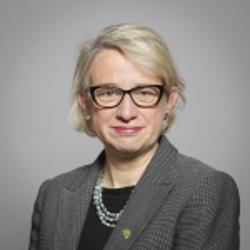Languages: GCE A-level and GCSE
(asked on 22nd March 2021) - View SourceQuestion to the Department for Education:
To ask Her Majesty's Government what assessment they have made of the report by Global Future Silenced Voices, published on 10 March; and what plans they have to help community language teaching (1) recover from the impact of the COVID-19 pandemic, and (2) increase.
The government remains committed to increasing take-up of all languages at GCSE through the English Baccalaureate (EBacc). Languages serve to broaden young people’s horizons and, as referred to in the Global Future Silenced Voices report, provides them with a number of employment opportunities and equips them with valuable skills that help ensure they can compete in the global market.
Since 2014, the national curriculum was reformed to include a modern or ancient language from age 7 to 11 at key stage 2. The expectation for secondary schools is to teach a modern language from age 11 to 14 at key stage 3 and for an increasing proportion of 14 to 16 year olds at key stage 4 to study a GCSE in a foreign language. Since 2010, the proportion of pupils at the end of key stage 4 entering modern foreign language GCSEs has increased from 40% to 46%.
We do not prescribe which languages schools should teach. Schools are free to teach any languages, including community languages, for whatever reasons they consider relevant, such as local demographics, social unity, or opening up wider career and future education opportunities. There is a broad range of community languages on offer in which pupils can take a GCSE or A level and we would like this to continue to be the case.
The Global Future Silenced Voices report mainly focuses on the importance of those studying GCSEs or A levels in a community language receiving a grade this year – in particular, those who have been studying outside a mainstream school environment. Private candidates can work with a centre to be assessed on a range of evidence, which could include evidence from an established educational provider and the board-provided assessment materials. The Joint Council for Qualifications has issued guidance for centres about assessing private candidates, taking into account their different circumstances.
To support centres with the additional requirements of assessing private candidates this year, and avoid the cost being passed on to candidates, we are providing a grant for centres to claim £200 per private candidate entry. The government is encouraging all available exams centres to sign up to help these candidates achieve their qualifications in this exceptional year.

